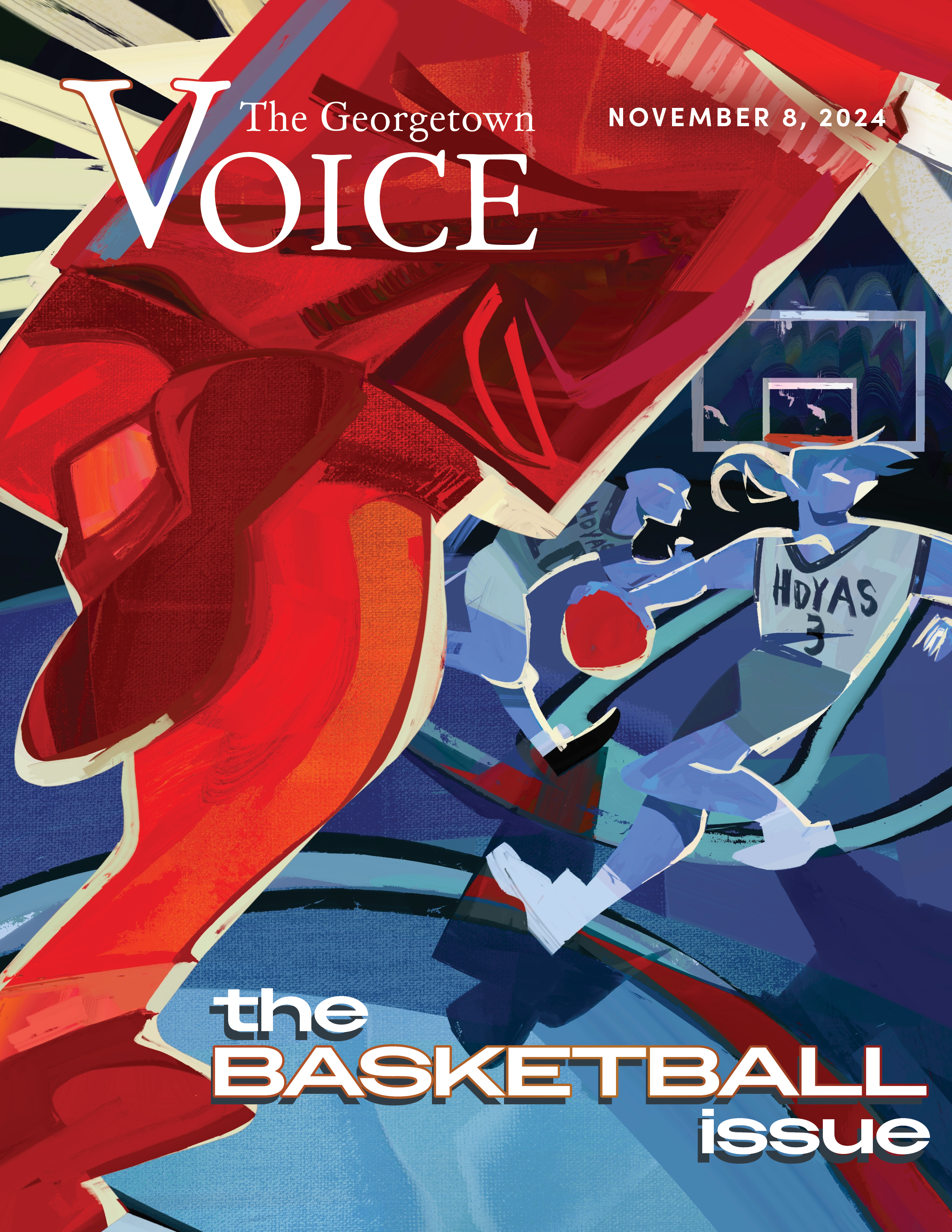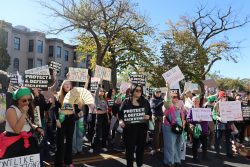After collaborating with UndocuHoyas, an advocacy group for undocumented students, throughout the month of December, the Office of Undergraduate Admissions has plans to include language on its website by next week that explicitly states the university’s practice of admitting undocumented applicants.
“[The group’s] basic concern was verifying that in fact being an undocumented student would not impact your admission decision, which it doesn’t,” Dean of Admissions Charles Deacon said. “They were concerned if there was some way we could send a better signal to the undocumented students.”
Although this practice is not new for Georgetown, the Office of Undergraduate Admissions will clarify its policy as other universities around the country have with official statements on admitting undocumented students, according to both Deacon and the group known as UndocuHoyas, which began meeting last semester.
Citlalli Alvarez (COL ‘15), a member of UndocuHoyas, expressed her frustration that the university does not include a statement on its website about undocumented applicants before the regular admissions deadline.
“We kind of hit a wall with the admissions process,” said Alvarez after having met with Deacon last semester. “And that’s really frustrating because, as regular decision came around, that’s the most important time in which students are looking at the website or applying or trying to figure out if they can or can’t apply … It’s a very important time.”
Senior Associate Director of Undergraduate Admissions Jamie Briseño was tasked with drafting the statement. Although he and UndocuHoyas did not discuss a desired deadline to publish the statement, the website will be updated by next week at the latest. According to Briseño, this timing is appropriate as it is when the Office of Undergraduate Admissions begins the process of recruitment for the class of 2020.
Briseño is currently in the process of guaranteeing that this statement is consistent with other university offices’ non-discrimination clauses. He also noted that the number of undocumented applicants may increase with the inclusion of this statement on the admissions’ website.
“Anything that we can do to increase the number of students who see Georgetown as an option and who fit the profile [of a Georgetown student] academically and otherwise, of personal qualities and experiences that we think would enhance the freshman class and their transfer class, that would be a benefit, I think, for everyone,” Briseño said.
Raising awareness about the issues that undocumented students already face at Georgetown, though, remains a central concern for UndocuHoyas, according to Alvarez.
“There is a need for resources that are visible and available to us,” Alvarez said. “And that being said, I think one of the ways that we wanted to do that, as well, was to increase our visibility within the GUSA campaigns. We have drafted our asks already, we have a good number of points in terms of what we want, and how we want it to be supported formally.”
Although the group has not drafted a formal petition that includes their requests, Clara Mejia (COL ‘17), another member of UndocuHoyas, said that the creation of a center for undocumented students or a hired staff member who is trained to assist undocumented students would greatly aid the undocumented population at Georgetown.
“This person or a center would serve as a centralized unit [to assist undocumented students] instead of the student independently going and trying to seek out the resources or doing the work that we have been doing and undocumented students before us have been doing,” Mejia said. “They could either go directly to a center or go to directly to this one person that is hired specifically for this … It would end you being your own advocate.”
According to Alvarez, this type of a center is present at other universities, such as at the University of California, Los Angeles, and some form of training on how to assist undocumented students is needed here at Georgetown, especially as the population of undocumented students in institutions of higher education increases.
“I mean Harvard has a hired staff member whose job it is specifically to work with undocumented students on Harvard’s campus,” Alvarez said. She explained that UndocuHoyas had been in conversation with the Division of Student Affairs last semester to try to bring in an outside non-profit to train administrators on these issues, but that the Division of Student Affairs did not make it a priority of theirs to try to get that training done.
“We are working to schedule that training session later this spring,” Dr. Todd Olson, Vice President for Student Affairs, wrote in an email to the Voice. “We are working to fit it in with other important diversity and inclusion topics for our staff.”
Currently, staff members in student affairs do not receive any training in handling undocumented students’ concerns, according to both Olson and Alvarez.
Cinthya Salazar, director of the Community Scholars Program in the CMEA, is the only university staff member who works with undocumented students.
“The undocumented students’ needs are vast and complex, so it is important to not only stay up to date on this important issue, but to allocate resources that will allow more professional staff at CMEA and in the Division to learn and implement initiatives that will meet the student needs,” Salazar wrote in an email to the Voice.
According to Olson, the Division of Student Affairs will continue to work to meet undocumented students’ needs as the population grows.
As the only administrator who works with undocumented students, Salazar expressed her own concerns with the growing population of undocumented students. “I personally plan to continue to bring to light this important issue. However, the current structure of the [CMEA] and my particular responsibilities as the Director of the Community Scholars Program allow me very little time to work on this, especially as the demand grows,” Salazar said.
Salazar also expressed sentiments about Georgetown’s need to serve these students due to its Jesuit identity.
“In order to fulfill our Jesuit mission, we should make progress and try to support the undocumented student population as much as we can,” Salazar wrote.




